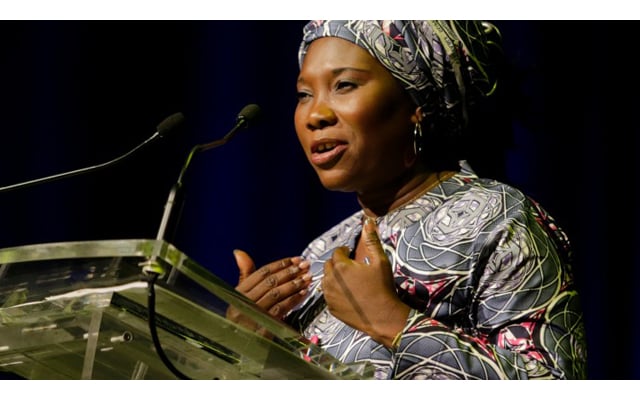Through this initiative, the WFH is laying the foundation for basic hemophilia care and building partnerships that all involved believe will lead to a comprehensive and sustainable structure of patient support and care delivery within recipient countries.
The WFH is proud to say that this program is delivering on its promise, but you don’t have to take our word for it. We asked Megan Adediran, founder and current Executive Director of the Haemophilia Foundation of Nigeria (HFN), the first Cornerstone country, and Deon York, WFH Board Lay Member and Chair of the WFH Fund and Resource Development Committee, to reflect on their experiences with this transformational project and this is what they had to say.
How long have you been involved with the WFH?
Megan: I have been actively involved with the WFH since 2008, its open nature and desire to help drew me in and since then I have come to believe very strongly in our shared vision of Treatment for All.
Deon: I have been with the WFH for over a decade; spurred by the recognition that solely due to access to great treatment and care I am able, even with severe hemophilia, to live an active and mostly pain-free life. Sadly, only a quarter of the world enjoys the level of care that I have in New Zealand.
Why do you feel the Cornerstone Initiative is important?
Megan: It plays a crucial role for Nigeria in developing the foundation for improved diagnosis as well as training in better treatment techniques for healthcare professionals. However, its true value lays in raising awareness about the challenges those living with blood disorders face daily. We never want another instance such as when four-year old Adiele went undiagnosed for two weeks after falling in his yard. I am happy to report that once properly diagnosed the HFN provided the required factor and within days he back playing, a happy ending this time, but we are working hard with the WFH to make sure no patient waits this long for treatment.
Deon: As Megan notes, it is all about infrastructure and the only way we can improve this is through working with patients, their families, and local organizations to educate decision-makers about the required resources. It takes time, expertise, and commitment to build a comprehensive blood disorder support system and it is this long-term investment in people, which for me is the heart and soul of the WFH that the Cornerstone Initiative addresses so well.
Thank you so much for speaking with us, do you have any final words for our readers?
Megan: Thank you to everybody who supports the work of the WFH, your generosity often makes the difference between life and death for many around the world. Every dollar you contribute allows us to continue our important work pursuing Treatment for All.
Deon: Achieving our goals requires multiple approaches, including our very successful WFH Humanitarian Aid Program and the Cornerstone Initiative. Yet, and this is where individual donations are crucial, it is our ability to educate and advocate that will ensure our community continues to receive the best possible care. The WFH, with its years of experience and dedicated network of volunteers is able to make maximum use of every financial contribution.
Would you like to join Megan and Deon in helping the WFH achieve its vision of Treatment for All? Contact Roddy Doucet, WFH Interim Annual Giving Manager at [email protected].












